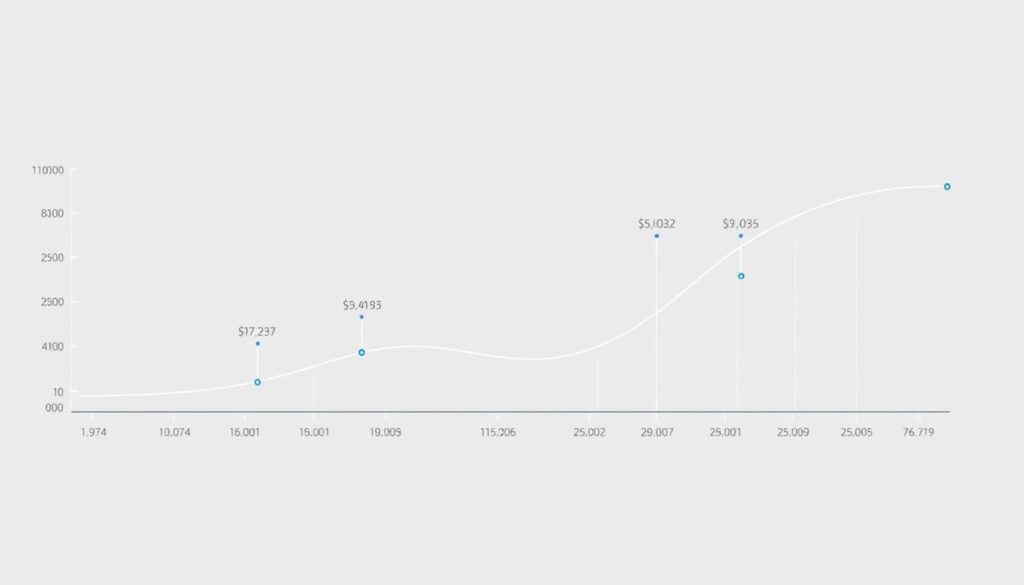Debt management is a structured approach to handling financial obligations, often through a Debt Management Plan (DMP). This plan helps individuals restructure repayments for non-priority debts, such as credit cards and personal loans. While it can ease cash flow, it may also affect your credit record1.
Lenders may view reduced payments as a sign of financial difficulty, potentially lowering your credit score. This can make borrowing more challenging in the future. However, a DMP can also be a step towards long-term financial recovery1.
It’s essential to weigh the pros and cons carefully. While a DMP isn’t legally binding and can be canceled, consistent payments are crucial to maintaining its benefits1.
Understanding Debt Management Plans (DMPs)
A Debt Management Plan (DMP) offers a structured way to handle repayments for non-priority debts. It’s an informal agreement between you and your creditors, allowing you to pay back what you owe at a more manageable pace2.
Definition and Key Features
A DMP is designed to simplify repayments by consolidating them into a single monthly payment. This is often coordinated by a DMP provider, who negotiates with creditors on your behalf2. Importantly, a DMP is not legally binding, meaning you can cancel it at any time without penalties2.
Not all debts can be included in a DMP. Non-priority debts, such as credit cards and personal loans, are typically covered. However, priority debts like mortgages or utility bills are excluded2.
How DMPs are Implemented
Setting up a DMP involves working with a provider, such as StepChange or PayPlan. They assess your financial situation and create a repayment plan tailored to your needs2. The provider then communicates with your creditors to agree on reduced payments.
While a DMP can ease financial pressure, it’s worth noting that creditors may not freeze interest and charges. This could mean you end up paying more over time2. Additionally, some providers charge fees, though free options are available2.
“A DMP can be a lifeline for those struggling with repayments, but it’s essential to understand the long-term implications.”
By focusing on non-priority debts, a DMP helps you regain control of your finances. However, it’s crucial to weigh the pros and cons before committing to this approach.
What does debt management do to your credit
Engaging in a structured repayment plan can influence your financial standing significantly. While it helps manage repayments, it may also affect your credit score and credit rating. Understanding these implications is crucial for making informed decisions.
Credit Implications of Reduced Payments
Making reduced payments under a DMP can lead to a lower credit score. Creditors may view this as a sign of financial difficulty, which can impact your ability to borrow in the future3. Additionally, missed payments during the plan can further complicate your financial profile4.
However, maintaining regular payments on a DMP is viewed more favourably than having unpaid debts or making infrequent payments3. This can help mitigate some of the negative effects on your credit rating.
How Lenders Interpret DMP Flags
A DMP may be noted on your credit report, indicating to lenders that you have had difficulties keeping up with repayments3. This marker can remain on your file for an unspecified period, even after the plan concludes3.
Lenders use this information to assess risk. While a DMP shows you are addressing your debts, it may still lead to application rejections or higher interest rates4. Understanding how lenders interpret these flags can help you prepare for future borrowing.
“A DMP can be a step towards financial recovery, but it’s essential to consider its impact on your creditworthiness.”
In summary, while a DMP can provide relief, it’s important to weigh its effects on your credit score and credit report. By staying informed, you can make decisions that support your long-term financial health.
Factors Impacting Your Credit Score Under a DMP
Your financial health is closely tied to how you handle repayments, especially under a structured plan. A Debt Management Plan (DMP) can influence your credit score in various ways. Understanding these factors can help you make informed decisions about your financial future.
Credit Score Basics
A credit score is determined by several components, including payment history, credit utilisation, and the length of credit history. Consistent payments, even if reduced, can positively impact your score over time5. However, account closures during a DMP may lower the average age of your credit accounts, which can have a negative effect5.
Regular payments under a DMP can improve your payment history, which is a significant factor in determining creditworthiness5. This can help you gradually rebuild your financial profile.
Effects of Long-Term Repayment Schedules
Stretching repayments over a long period can keep negative entries on your credit file for an extended time. This may affect your ability to access new credit6. However, maintaining consistent payments can demonstrate financial responsibility, which lenders view favourably5.
Here’s a breakdown of how different factors influence your credit score under a DMP:
| Factor | Impact |
|---|---|
| Payment History | Positive if payments are consistent5 |
| Credit Utilisation | May increase if accounts are closed6 |
| Length of Credit History | May decrease due to account closures5 |
| New Credit Applications | Limited access while on a DMP7 |
It’s essential to monitor your credit report regularly to ensure accuracy and track progress. For more insights, visit this resource.
By understanding these factors, you can take steps to manage your score effectively while on a DMP. Consistent payments and careful financial planning are key to long-term success.
Pros and Cons of Debt Management Plans
Structured repayment plans, such as a DMP, offer both benefits and challenges for individuals managing financial obligations. Understanding these can help you make informed decisions about your financial future.
Advantages of Simplified Repayments
One of the main benefits of a DMP is the consolidation of multiple debts into a single monthly payment. This simplifies the repayment process, making it easier to manage your finances8. Additionally, some creditors may agree to freeze interest and charges, which can prevent further debt accumulation9.
Another advantage is the potential for reduced fees. By negotiating with creditors, a DMP provider can help lower monthly payments, easing financial pressure8.
Potential Drawbacks and Increased Interest
While a DMP can simplify repayments, it may also lead to higher overall interest costs. Since the repayment period can extend up to 10 years, you might end up paying more in the long run8.
Another concern is that creditors may view a DMP unfavourably. This can affect your ability to secure loans or credit in the future, as it indicates past financial difficulties10.
Lastly, a DMP does not write off any debts. Unlike other insolvency procedures, you are required to repay the full amount, which can be a significant financial burden9.
“A DMP can provide relief, but it’s essential to weigh the long-term costs and implications.”
In summary, a DMP offers a structured way to manage repayments, but it’s crucial to consider both the benefits and potential drawbacks. By understanding these factors, you can make a decision that supports your financial goals.
The Role of DMP Providers and Debt Management Companies
DMP providers and debt management companies play a pivotal role in helping individuals regain financial stability. These organisations assist by negotiating with creditors, simplifying repayments, and offering tailored solutions to manage financial obligations effectively11.
Services Offered by Providers
DMP providers offer a range of services designed to ease financial stress. These include budgeting support, administration of monthly repayments, and negotiation with creditors to reduce interest rates or waive fees12. For example, StepChange and PayPlan, two leading providers, create personalised repayment plans that align with an individual’s financial capacity11.
Additionally, some providers offer free services, funded by voluntary contributions from creditors. This model ensures that individuals can access support without incurring additional costs12.
Regulation and Free Versus Fee-Based Support
It’s crucial to choose a regulated provider authorised by the Financial Conduct Authority (FCA). This ensures transparency and reliability in the services offered11. While some companies charge fees, others, like National Debtline, provide free assistance, making debt management accessible to all12.
- Free Services: Offered by charities, these include budgeting advice and DMP administration without upfront costs12.
- Fee-Based Support: Some companies retain the first monthly payment as a deposit, which may delay creditor payments11.
“Choosing a regulated provider ensures you receive trustworthy advice and support tailored to your financial situation.”
By understanding the role of DMP providers and the differences between free and fee-based services, individuals can make informed decisions to improve their financial health.
Navigating Interest Rates and Additional Fees
Understanding how interest rates and fees operate within a structured repayment plan is crucial for effective financial management. While a Debt Management Plan (DMP) can simplify repayments, it’s essential to consider how interest accumulates over time and the potential costs involved.
How Interest Accumulates Over Time
Interest on outstanding balances can significantly increase the total amount repaid over the duration of a DMP. Although some creditors may reduce or freeze interest charges, this is not guaranteed13. Prolonged repayment periods can lead to higher overall costs, making it vital to assess the long-term implications.
For example, a loan with a high-interest rate could see its balance grow if payments are reduced or delayed. This contrasts with formal agreements like an Individual Voluntary Arrangement (IVA), where creditors are legally obliged to stop charging interest13. Such differences highlight the importance of choosing the right solution for your financial situation.
“A DMP can provide short-term relief, but understanding its long-term costs is key to making informed decisions.”
Here’s a comparison of how interest is handled in different repayment plans:
| Plan Type | Interest Handling |
|---|---|
| DMP | Creditors may reduce or freeze interest, but this is not guaranteed13 |
| IVA | Creditors must stop charging interest under legal obligations13 |
By carefully evaluating these factors, you can choose a solution that minimises costs and supports your financial recovery. Always consider seeking professional advice to ensure the best outcome for your circumstances.
Impact on Mortgage, Rental, and Financial Applications
Navigating financial applications while on a structured repayment plan can present unique challenges. A Debt Management Plan (DMP) may affect your ability to secure a mortgage, rent a property, or access other forms of credit. Understanding these implications is essential for planning your financial future.
Challenges in Obtaining a Mortgage
Securing a mortgage while on a DMP can be difficult. Lenders often view a DMP as a sign of financial instability, which may lead to higher interest rates or limited borrowing options14. Additionally, a DMP flag on your credit file can remain for several years, affecting your creditworthiness14.
Some lenders may require a larger deposit to offset the perceived risk. For example, a borrower with a DMP might need to provide a higher amount upfront compared to someone with a clean credit history14. It’s often recommended to wait until your credit score improves before applying for a mortgage14.
Considerations for Renting with a DMP
Renting a property can also be challenging if you’re on a DMP. Many landlords conduct credit checks, and a DMP flag may raise concerns about your ability to pay rent on time14. Outstanding bills or defaults can further complicate rental applications.
To improve your chances, consider offering a larger deposit or providing references to demonstrate financial responsibility. Timing your application after completing a DMP can also help, as it shows you’ve addressed past financial difficulties14.
“While a DMP can provide financial relief, it’s important to plan ahead for major applications like mortgages or rentals.”
Here are key points to consider when applying for a mortgage or rental property:
- Mortgage lenders may charge higher interest rates or require larger deposits14.
- Landlords may perform credit checks, revealing a DMP flag14.
- Outstanding bills and defaults can influence decisions14.
- Specialised lenders might still offer options, though terms may vary14.
For more information on alternative debt solutions, such as an Individual Voluntary Arrangement (IVA), explore our detailed guide. Understanding your options can help you make informed decisions about your financial future.
Advice and Support: Seeking Professional Guidance
Seeking professional guidance can be a game-changer when dealing with financial challenges. Whether you’re looking to repay debt or improve your financial situation, expert advice can provide clarity and direction. Knowing where to start and who to trust is essential for making informed decisions.
Choosing the Right Debt Management Company
Selecting a reputable debt management company is crucial. Look for providers regulated by the Financial Conduct Authority (FCA) to ensure transparency and reliability15. Companies like StepChange and PayPlan offer tailored solutions to help you manage your financial situation effectively.
Here are key factors to consider:
- Regulation: Ensure the provider is FCA-authorised15.
- Fees: Opt for companies with transparent fee structures or free services16.
- Reputation: Check reviews and testimonials to gauge reliability.
By choosing the right provider, you can simplify the process of repaying debt and regain control of your finances.
Utilising Free Debt Advice Services in the UK
Free debt advice services are invaluable for those facing financial difficulties. Organisations like National Debtline and Citizens Advice offer impartial support, helping you navigate your situation without additional costs16.
These services can assist with:
- Budgeting and financial planning.
- Negotiating with creditors to reduce payments15.
- Providing tailored solutions for your specific thing.
“Early intervention with free debt advice can prevent larger financial problems and set you on the path to recovery.”
For more insights on improving your financial health, explore how subscriptions can positively impact your credit. Taking proactive steps today can lead to a brighter financial future.
Strategising Your Debt Repayment Timeline
Creating a clear repayment timeline is essential for financial stability. It helps you allocate your income effectively and ensures you meet your financial commitments on time. A well-structured plan can also reduce stress and improve your overall financial health17.

Budgeting and Managing Disposable Income
Effective budgeting is the cornerstone of a successful repayment plan. Start by assessing your disposable income—the amount left after essential expenses. This helps you determine how much you can allocate towards repayments each month17.
Here are some strategies to consider:
- Prioritise essential expenses like rent, utilities, and groceries.
- Allocate a fixed percentage of your income towards repayments.
- Use free budgeting tools to track your spending and savings18.
Maintaining a disciplined arrangement ensures you stay on track. Regular, on-time payments not only reduce your debt but also improve your credit file over time17.
Free budgeting tools, such as those offered by StepChange, can simplify this process. These tools help you monitor your income and expenditures, making it easier to stick to your plan.
“A well-planned repayment timeline can transform your financial situation, providing clarity and control.”
Regularly reviewing your financial situation is crucial. Adjust your timeline if necessary to accommodate changes in your income or expenses. This flexibility ensures your plan remains realistic and achievable17.
By following these steps, you can create a repayment timeline that works for you. A disciplined approach not only helps you manage your finances but also strengthens your credit file over time.
Conclusion
Structured repayment plans can significantly influence one’s financial health, particularly their rating. While these plans may affect credit initially, they provide a clear pathway to regain control and stay credit-worthy. Consistent, on-time payments under such plans can gradually improve your financial profile over time19.
It’s important to weigh the pros and cons carefully. While short-term impacts on your rating are possible, the long-term benefits of disciplined repayments can lead to significant improvements20. Seeking professional advice tailored to your circumstances ensures you make informed decisions.
Ultimately, a well-managed repayment plan is a practical solution for addressing financial challenges. By staying committed, you can rebuild your financial standing and achieve stability.
FAQ
What is a Debt Management Plan (DMP)?
A DMP is an agreement between you and your creditors to repay your debts at a reduced rate. It’s managed by a DMP provider, who negotiates with creditors on your behalf to lower payments and sometimes reduce interest.
How does a DMP affect my credit score?
Entering a DMP can lower your credit score as it indicates you’re not meeting original repayment terms. However, it can also show you’re taking steps to manage your debt, which may be viewed positively over time.
Will a DMP stay on my credit report?
Yes, a DMP will appear on your credit file for six years, even after you’ve completed it. This can impact your ability to secure loans, mortgages, or other credit during this period.
Can I get a mortgage while on a DMP?
Obtaining a mortgage while on a DMP can be challenging. Lenders may see you as a higher risk, and your credit rating will likely be affected. It’s advisable to seek professional advice before applying.
Are there fees involved with a DMP?
Some DMP providers charge fees, while others offer free services. Always check the terms and ensure the company is regulated by the Financial Conduct Authority (FCA) to avoid unnecessary costs.
How long does a DMP take to complete?
The duration of a DMP depends on your debt amount and repayment capacity. It can take several years, but sticking to the plan helps you gradually repay debt and improve your financial situation.
Can creditors still contact me during a DMP?
Once a DMP is in place, your creditors should stop direct contact. However, they may still send statements or updates about your account. If harassment continues, inform your DMP provider.
What happens if I miss a payment on my DMP?
Missing a payment can lead to penalties or even the cancellation of your DMP. It’s crucial to communicate with your provider if you’re struggling to meet repayments to avoid further issues.
Can I include all my debts in a DMP?
Most unsecured debts, like credit cards and personal loans, can be included in a DMP. However, secured debts, such as a mortgage, or priority debts like council tax, are typically excluded.
Is a DMP the same as an IVA?
No, a DMP is an informal arrangement, while an IVA (Individual Voluntary Arrangement) is a legally binding agreement. An IVA has stricter terms and can have more significant implications for your credit rating.
Where can I get free debt advice in the UK?
Organisations like StepChange, Citizens Advice, and the Money Advice Service offer free, impartial advice to help you manage your debt and explore solutions like a DMP.
Source Links
- https://www.experian.co.uk/consumer/guides/debt-management-plan.html
- https://www.citizensadvice.org.uk/debt-and-money/debt-solutions/debt-management-plans/debt-management-plans-explained/debt-management-plans-what-you-need-to-know/
- https://www.citizensadvice.org.uk/debt-and-money/debt-solutions/debt-management-plans/debt-management-plans-explained/credit-rating-impact-of-debt-management-plan/
- https://www.payplan.com/debt-info/credit-score-and-debt/impact-on-your-credit-rating/
- https://www.robinwaite.com/blog/how-does-a-debt-management-plan-affect-your-credit
- https://www.moneymanagement.org/debt-management/faq/will-a-debt-management-plan-hurt-my-credit
- https://pennyplan.co.uk/insights/credit-while-on-debt-management-plan-dmp/
- https://www.moorestoke.co.uk/dmp-pros-and-cons/
- https://moneyplusadvice.com/debt-solutions/debt-management-plan/pros-and-cons/
- https://www.voscap.co.uk/the-pros-and-cons-of-a-debt-management-plan/
- https://nationaldebtline.org/get-information/guides/debt-management-plans-ew/
- https://www.lowell.co.uk/help-and-support/debt-guidance/what-is-a-debt-management-plan/
- https://www.cashfloat.co.uk/blog/money-saving/interest-debt-management-plans/
- https://www.cashfloat.co.uk/blog/money-saving/debt-management-plans-home/
- https://www.debtmanagementplans.uk.com/guides/professional-debt-management-advice-makes-a-difference.html
- https://www.moneysavingexpert.com/loans/debt-help-plan/
- https://www.experian.com/blogs/ask-experian/what-is-debt-management/
- https://www.experian.com/blogs/ask-experian/debt-settlement-vs-debt-management-programs/
- https://credit.org/blogs/blog-posts/the-impact-of-a-debt-management-plan-on-your-credit-score
- https://debtcamel.co.uk/dmp-credit-rating/

















